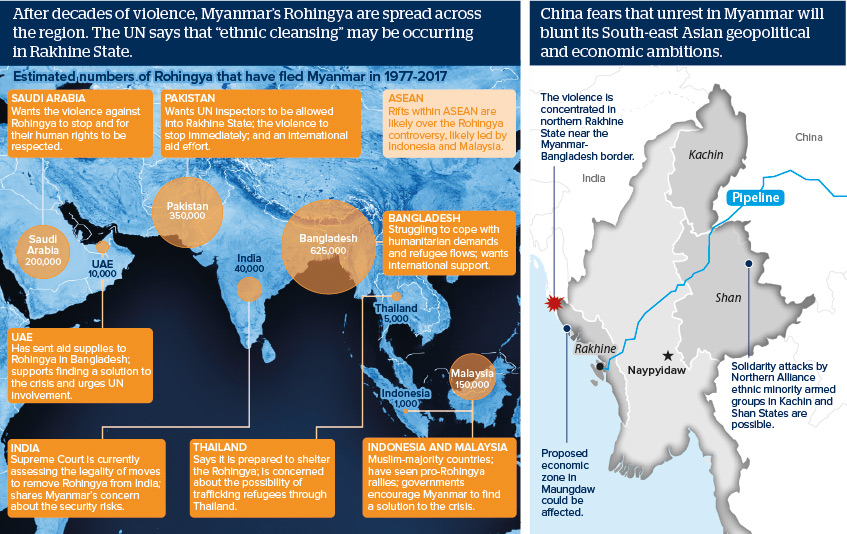Myanmar Rohingya crisis will cause global controversy
A flare-up of violence in Myanmar has triggered mass refugee flows and sparked regional and global concern
Source: Media reports; UNHCR; Al Jazeera, Oxford Analytica
Outlook
As of this week, up to 400,000 Rohingya, a mostly Muslim minority without citizenship, are estimated to have fled Myanmar for Bangladesh since the Arakan Rohingya Salvation Army (ARSA) in late August conducted coordinated attacks on Myanmar police and military targets, sparking a security crackdown.
This has seen widespread claims of systematic abuse of Rohingya and possible “ethnic cleansing” which Myanmar’s government and military deny. Similar claims were made when ARSA conducted its first, smaller attacks in October 2016 over what it sees as military repression. Before October 2016, the UNHCR estimates that 168,500 Rohingya had fled Myanmar since 2012, going to Malaysia (112,500), Bangladesh (43,000) and India (13,000).
ARSA has called a ceasefire for humanitarian reasons until early October. Myanmar’s government, deeming ARSA “terrorists”, has rejected this.
Impacts
- New international sanctions on Myanmar are unlikely.
- If ethnic and sectarian violence and suspicion spread, Myanmar’s wider internal security and economy could suffer.
- With large numbers of refugees on the move, a spike in human trafficking and forced labour is likely.
- Any Rakhine reforms will be politically and socially controversial, and could alienate the military and its administrators.
See also
- Refugee crisis could hit Myanmar economy soon - Oct 19, 2017
- US influence in South-east Asia is likely to wane - Sep 20, 2017
- Myanmar speech will not mollify Suu Kyi's critics - Sep 20, 2017
- Myanmar terrorism and political dangers will rise - Sep 18, 2017
- Cambodia-US frictions are set to worsen - Sep 18, 2017
- Outlook for a Rakhine solution in Myanmar is poor - Sep 1, 2017
- More graphic analysis
